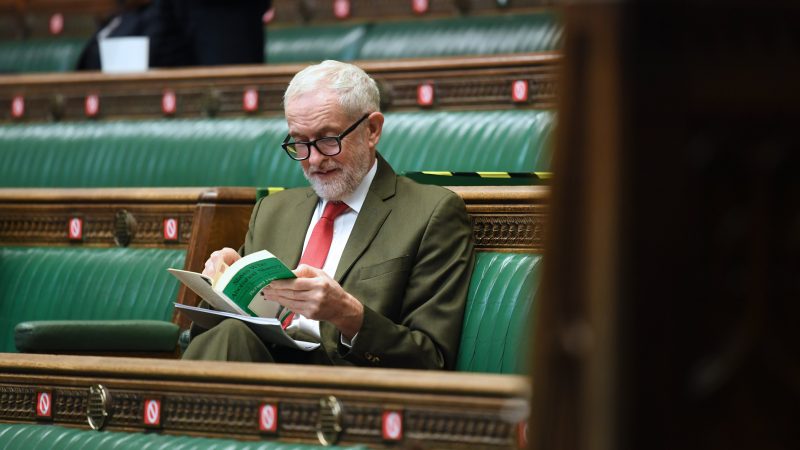
Wednesday morning saw about a week’s worth of political news condensed into just a couple of hours. Dominating the headlines today is the announcement by Nicola Sturgeon that she is resigning as Scottish First Minister after eight years in the role. The SNP leader said at a press conference she knows that the “time is now” for her to step down, telling attendees that the move is “right for me, for my party and for the country”. Anas Sarwar said Sturgeon was an “able politician” who has “stood at the forefront of Scottish politics for more than 20 years”, adding: “On a human level, that is worthy of respect and thanks.” But the Scottish Labour leader stressed: “Our country, now more than ever, requires a politics focused on delivering the change Scotland needs – by uniting Scotland and not dividing it. It is clear that Scotland needs new ideas and new passion to make our country the best place to grow up and grow old in.”
Where does Sturgeon’s departure leave Labour? Former Scottish Labour leader Jim Murphy argued that it is a “real opportunity” for the party, and, according to the Guardian, party sources believe her resignation could see Labour win back up to 15 or 20 seats at the next general election. But some commentators have been quick to pour cold water on the significance for Labour’s electoral prospects in Scotland. Professor of territorial politics at the University of Edinburgh Nicola McEwan told Politico she would be “surprised” if it had “any immediate and dramatic impact that favoured the other parties”. She said: “The SNP is a formidable electoral machine and they haven’t got to where they’ve got to purely on the back of Nicola Sturgeon.” Pollster and professor of politics at Strathclyde University John Curtice acknowledged that the SNP might descend into a “fractious debate” about independence and “as a result voters get turned off”, but added: “Maybe somewhere among that bunch of unknowns there is a leader who can do what Sturgeon said they need to do: stop talking about process and start making a substantive case for independence in a post-Brexit environment. If that happens, it might all come back together for them again.”
Labour potentially has a fractious debate of its own brewing. In a long-expected move, Keir Starmer confirmed yesterday that Jeremy Corbyn will not be permitted to stand as a Labour candidate at the next general election. Following a speech on the Equality and Human Rights Commission’s (EHRC) announcement that it has concluded its monitoring of the Labour Party, in which the Labour leader said the party has changed “permanently, fundamentally [and] irrevocably”, Starmer said: “What I said about the party changing I meant, and we are not going back, and that is why Jeremy Corbyn will not stand as a Labour candidate.” The former Labour leader described the move as a “flagrant attack on the democratic rights” of local party members in his Islington North constituency. He said in a statement: “It is up to them – not party leaders – to decide who their candidate should be. Any attempt to block my candidacy is a denial of due process and should be opposed by anybody who believes in the value of democracy.”
Corbyn – who has sat as an independent MP since he had the Labour whip removed in October 2020 following his response to the publication of the EHRC’s report on allegations of antisemitism within the party – is understood to be likely to put himself forward for selection as the Labour candidate for Islington North. But with powers over longlisting taken away from local parties last year, the party leadership has far more control over the process. National executive committee (NEC) member Luke Akehurst – part of the Starmer-backing Labour to Win group – tweeted in response to reports Corbyn would seek to stand to be a Labour MP: “All candidates have to be endorsed by the NEC. A local [constituency Labour Party] can’t just go and pick who they fancy.”
On LabourList this morning, we have a piece from TUC general secretary Paul Nowak on tackling sexual harassment in the trade union movement, following Helena Kennedy’s report on sexual harassment and bullying at the TSSA. Nowak writes: “As a senior man in our movement, I have a responsibility to lead and to challenge other men on their leadership and the behaviours they enable and allow. Men can stop sexual harassment – and all sexual violence. You have my word: I am determined to root out sexual harassment in the union movement and create a zero tolerance culture.”
Sign up to LabourList’s morning email for everything Labour, every weekday morning.



More from LabourList
‘Labour won’t stop the far right by changing leaders — only by proving what the left can deliver’
‘Cutting Welsh university funding would be economic vandalism, not reform’
Sadiq Khan signals he will stand for a fourth term as London Mayor